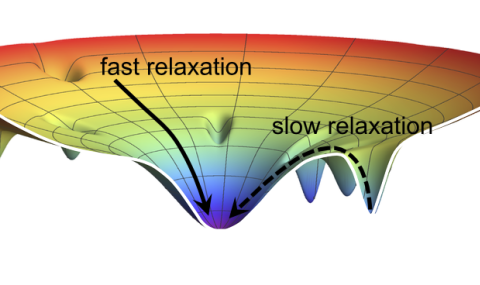In the early 60's, a high school student from Tanzania named Erasto Mpemba discovered that it is faster to freeze hot ice cream mixture, rather than do as he was told by his teacher and use a cold mixture. This story has two parts, both well documented through history: (i) Teachers are commonly wrong, and (ii) Under certain circumstances hot water freezes faster than cold water. The latter was in fact known already to Aristotle, and is now referred to as the Mpemba effect.
Although various mechanisms to explain this counter-intuitive phenomenon were suggested, it is not yet clear which mechanism is responsible to the effect under which circumstances, and some even argue that the effect does not exist. In resent years it has been discovered that similar non-monotonic relaxation processes exist in various other systems, for example in magnetic alloys and carbon nano-tube resonators.
Our group is trying to find fundamental processes in non-equilibrium statistical mechanics that can lead to such anomalous relaxations. Some of our results can be found in the publications below:
- Nonequilibrium thermodynamics of the Markovian Mpemba effect and its inverse (PNAS 2017)
-
Mpemba Index and Anomalous Relaxation (PRX 2019)
-
Precooling Strategy Allows Exponentially Faster Heating (PRL 2020)
-
Mpemba effect in driven granular Maxwell gas (PRE 2020)
-
Relaxation shortcuts through boundary coupling (arXiv 2021)
-
Far from equilibrium relaxation in the weak coupling limit (arXiv 2022)
-
Landau Theory for the Mpemba Effect Through Phase Transitions (arXiv 2022)
A few popular science articles that (try to) explain our works, and related experiments:
-
Controversy Continues Over Whether Hot Water Freezes Faster Than Cold (Quanta Magazine)
-
Mpemba effect runs in reverse (Physics Today)
-
When cold warms faster than hot (Physics world)
-
A new experiment hints at how hot water can freeze faster than cold (Science News)
-
Why does hot water freezes faster than cold water? Enter the Mpemba effect (ZME-Science)
-
The Mpemba Paradox (Simple Science)
-
Looking to the past might explain why hot water can freeze faster than cold (Chemistry World)


